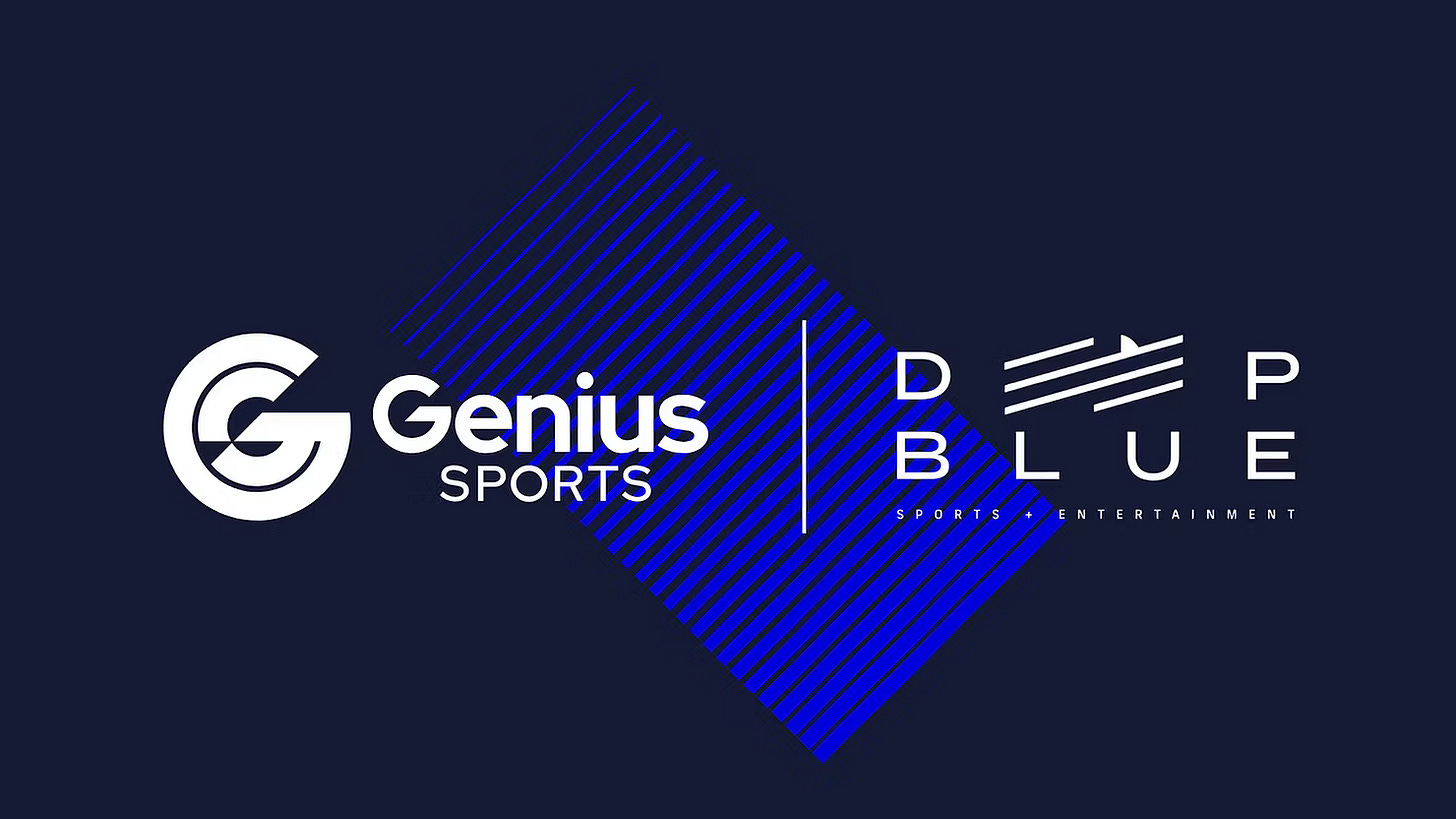March 2025 Sports Tech Highlights
Beyond AI: Diversification Across Multiple Tech Frontiers Reshapes Sports Innovation Landscape
Hello sports tech enthusiasts 👋🏼 Welcome to Regen Sports, your twice-weekly deep dive into the intersection of sports and technology. Every Monday, catch up on the week's most important developments in sports innovation, and every Thursday, explore in-depth analysis of trends, companies, and technological breakthroughs reshaping the future of sports.
The sports tech landscape in March has witnessed a significant broadening of technological adoption across the sports industry, with innovations expanding beyond AI to encompass wearable technology, blockchain applications, immersive experiences, and data analytics platforms.
The most significant development came in week 13 (March 24-31) with KT Corp's transformation of Suwon KT Wiz Park into a fully AI-integrated stadium, representing one of the most comprehensive implementations of smart venue technology in professional sports and setting a new benchmark for stadium experiences.
Looking at March's major developments:
Week 10 (March 3-10):
BleeqUp debuted Ranger, the world's first 4-in-1 AI cycling glasses, combining action camera, open-ear headphones, and walkie-talkie
WSC Sports partnered with the Big 12 Conference to enhance digital presence through AI-powered video content
The English Rugby Football Union agreed to a multi-year technology partnership with Apple for on-pitch performance enhancement
Week 11 (March 10-17):
The New England Patriots announced plans to launch an AI-driven chatbot for personalised fan guidance at Gillette Stadium
UNA Watch secured £300K in funding to expand wearable tech operations and R&D
PGA TOUR debuted AI shot commentary in its revolutionary TOURCAST, leveraging AWS partnership
Week 12 (March 17-24):
Muse launched the S Athena, the world's first consumer wearable providing advanced cognitive fitness insights
Zenniz secured €2 million to expand its smart tennis court technology
SailGP unveiled AI-powered race marks, cameras, and immersive fan experience technology
Week 13 (March 24-31):
KT Corp integrated AI throughout Suwon KT Wiz Park, creating an AI stadium focused on fan interactions and congestion management
The University of Portsmouth and TG0 developed smart insoles that accurately measure body-ground interaction
Paris Saint-Germain became the first football club to launch a sport innovation accelerator at STATION F
The transformation of KT Wiz Park into an AI stadium represents March's most significant innovation story. This comprehensive implementation demonstrates how technology integration is moving beyond isolated applications to create fully connected sporting environments that enhance both operational efficiency and spectator experiences.
Investment Activity
March 2025 has seen continued strong investment in sports technology, though at a more moderate pace than the record-breaking figures of January and February. The month's investments were characterised by strategic funding across multiple technology verticals rather than the mega-deals of previous months.
Notable funding announcements from March include:
Champion Venture Partners, led by former NFL player Marques Colston, raised $100 million for sports asset classes
Aescape, the AI-powered robotics company for personalised massage recovery, raised $83 million led by Valor Equity Partners
Playtomic closed a $70 million funding round to expand racket sports court rentals in the US, UK, and Germany
Playback, a live streaming platform connecting creators and fans to live sports, raised $22 million
Out2Win, the AI-powered athlete marketing intelligence platform, closed a $1.3 million seed funding round
March also saw significant acquisition activity:
Sportradar received $125 million from Endeavor as part of its acquisition of IMG Arena data platform
Hudl completed the acquisition of FastModel Sports to enhance game preparation and scouting
Champion Data acquired UK-based WORKS to enhance live event experiences
Emerging Trends
Image source: Genius Sports
Several key trends emerged from March's developments:
Wearable Technology Expansion: From BleeqUp's Ranger cycling glasses to Muse's cognitive fitness wearable and the University of Portsmouth's smart insoles, wearable tech is rapidly evolving beyond fitness tracking to provide specialised insights across multiple sports.
Venue Transformation: The KT Wiz Park AI stadium implementation, along with developments like OneCourt's haptic display at PHX Arena, indicates a shift toward technology-first venue experiences.
Cross-Industry Partnerships: The month saw unusual collaborations, including Juventus FC partnering with Lunar Outpost for space exploration awareness and Atlassian Williams Racing partnering with Brillio for data and AI services.
Digital Asset Innovations: UEFA Champions League's digital collectible collaboration with Crypto.com and Chiliz's blockchain hackathon announcement highlight continued expansion in blockchain applications for sports.
Women's Sports Data Intelligence: Genius Sports announced a strategic partnership with Deep Blue and Precise to launch a dedicated audience intelligence and monetisation service for women's sports. This AI-powered analytics solution integrated into their FanHub platform aims to help rights holders, brands, and federations unlock the commercial potential of women's sport through targeted engagement.
Global Expansion of Sports Innovation Hubs: With announcements like UAE's ISEZA sports business cluster, PSG's innovation accelerator at STATION F, and South Australia's Sports Technology Showcase, sports innovation infrastructure is becoming increasingly global.
Looking Ahead
March's developments signal a maturation of the sports technology sector, with innovations now penetrating every level of sports operations from grassroots to elite competition. The diversification beyond AI-only solutions toward comprehensive technology stacks incorporating wearables, immersive experiences, and sophisticated venue technologies suggests an industry moving toward integration rather than siloed innovation.
The emergence of innovation hubs and accelerators dedicated specifically to sports technology, backed by major clubs like Paris Saint-Germain, indicates the industry is building sustainable infrastructure to support continuous innovation. These developments, combined with consistent investment activity, point to a sports technology ecosystem that's moving from novelty to necessity.
As we move into Q2 2025, we anticipate further integration of these technologies into mainstream sports operations, with particular attention on how the upcoming summer sports calendar will showcase these innovations on global stages. The balance between technology enhancement and preserving the human elements of sport will remain a central question as these implementations scale across competitions worldwide.
Track the Trends. Spot the plays. Shape the game.
Thanks for reading,
Dean
P.S. If you found this newsletter valuable, please share it with colleagues who might benefit from these insights. The sports tech industry grows stronger when we learn together.




